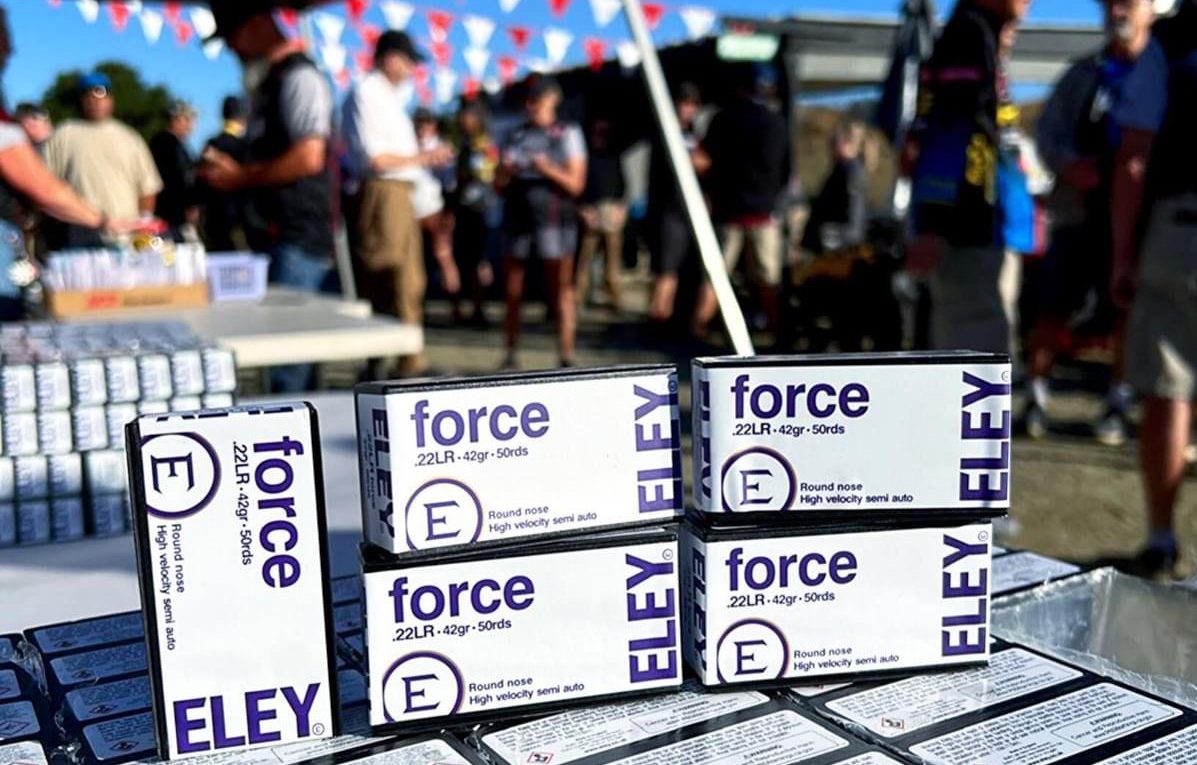A couple of months ago, Martyn Buttery, test range manager and GB Talent Squad coach, discussed the importance of dry fire practice. The benefit; you can do it anywhere. That makes it more important than ever given the current circumstances. If your local range is closed, you can easily set-up a space at home with an aiming mark and continue to practice your process.
However, with the pandemic going on for much longer than most of us had anticipated, it’s easy to become bored of dry firing. That’s why Team GB athlete and ELEY shooter Sam Gowin is here to give us his tips on how to push through prolonged dry fire practice.
“Most shooting athletes understand that dry firing is very important to improve the basic technical and strategic elements of shooting. Dry firing is a great way to really hone the skills and can even be quite meditational.
In the current circumstances where we cannot access our ranges to conduct live firing, we have no choice but to dry fire. And there’s no knowing for sure how long this will go on for. My guess is that this will continue and I will be dry firing for a long time.
I fully understand the importance of dry firing. My discipline is Rapid Fire Pistol, and I can see so much benefit. Rapid Fire Pistol is fairly complex. Along with pistol accuracy and fine control, this discipline requires rather large body movement that must be fast, yet controlled and accurate. This takes a long time to perfect and quality dry firing can help accelerate this process of learning. This is true for other disciplines also.
But if we are dry firing for extended periods of time, the thought of practicing up against a wall for weeks or months on end can sound rather daunting right? Here are some ideas that may help you stay motivated to keep training.
- See the bigger picture
Remember that if your ambition is to gain a quota place for the Olympic Games for example, that dream doesn’t have to vanish. Eventually things will restart and the pace will pick up again. Stay positive and remember that every quality training session is taking you a step closer to your dream.
- Have a solid training plan
Use your long-term goal and break it down into more manageable chunks (medium and short-term goals that lead to the long-term goal). This will make every monthly or weekly goal more achievable. It will also make the overall goal seem less daunting. Using these medium and short-term goals, plan your daily training sessions accordingly. Although you may only be training at home, it’s worth having proper session plans and sticking to them. Planning properly in this time is very important to ensure the best training outcomes possible – train smart!
- Challenge yourself
One of the best ways to keep your dry fire motivation is to set yourself challenges. These don’t have to only be doing practice matches. They can be objective specific and fun! I have even tasked others such as family to set weekly challenges for me to complete that are specific to my training objective (once they know what I’m trying to achieve). If I succeed in their challenge then I get rewarded. If I fail then I have to complete a simple forfeit. This keeps my training fun, motivated and up to a good quality. You could even configure a way to set up a challenge against your other shooting peers.
- Make yourself accountable
I really don’t like “going through the motions” so to speak. Whilst I am dry firing, the feedback that I am getting is obviously limited as I’m not getting target feedback – unless using Scatt or direct coach feedback. Instead I have used my daily training session plans to compile a session ‘workbook’ which asks me the questions that are relevant to my goal. For example, after each series I ask “Did I prepare properly?” Once I have completed my set amount of training (that I pre-set in my plans) I can then tally up the information, dress up the data and use it to check for progress within my training. Doing this helps to keep training relevant and motivated almost as if I were on a real range.
- Keep your support team close
Keep communicating with your normal support team regularly. That includes sport psychology sessions, strength and conditioning sessions, working with your coach, fellow athletes etc.
- Rest
Dry firing can be rather intensive training, we obviously need to minimise the risk of injury and we also need to keep the mind as happy and healthy as possible. However, unless you have programmed a rest period, remember to stay motivated enough to pick up your gun again and get to work.
- Give a workshop talk about your shooting discipline
This could be to younger athletes or team-mates for example using video calling technology. I have found in the past that when I give briefs about something this ‘reignites’ the past shooting experience and feelings. Doing this regularly can help you keep hold of the important information so that you don’t forget ‘how you shoot’.
To keep up to date with Sam’s training, follow him on Instagram.





